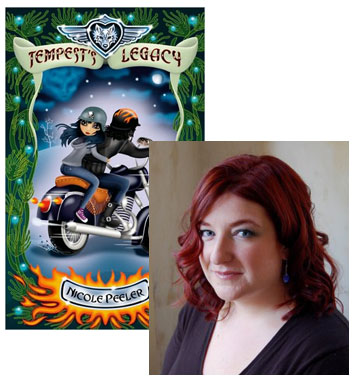A Quick Post About Nothing

I had the good fortune back in January of attending two of the Rubin Museum’s “Talks About Nothing,” including the conversation between theater and opera producer Peter Sellars and social activist Raj Patel (who had just published a book about the value of nothing) that brought the series to a close. I’ve seen Sellars speak a few times; he’s always been tremendously inspiring, and this was no exception—in fact, it was even more inspiring than usual, because the creative inspiration was amplified by the moral inspiration that came from his dialogue with Patel.
The quote I singled out was especially meaningful to me as it resonates very powerfully with a project that I’ve been developing over the last few months, in which I’ll be directly engaging with a vast amount of literature covering a subject about which I have just slightly more than a superficial knowledge, but which I’ve long wanted to learn more about. (Sorry to be so coy here, but the official announcement is still a short ways off.) But I’ve also been thinking a lot about Patel’s comment that “the nothing that we ought to be recognizing is the nothing that stands in your way from doing something.” Pretty awesome takeaways from an event about “nothing,” and the one other conversation I attended—between Fiona Shaw and Simon Critchley—also took some fascinating turns, starting with a discussion of themes in Ibsen’s plays and making its way through Beckett and Yeats before the hour was up. I really love projects like this, both as a spectator and a presenter, that push me into unfamiliar territory and force me to pay real attention to what’s going on.
If you live in New York, and you haven’t attended an event at the Rubin Museum of Art yet, I highly recommend it: Programming director Tim McHenry draws inspiration from the themes of the art exhibitions, tailoring the various events series to their broad themes. The “Talk About Nothing” dialogues, for example, sprung from an exhibition of five contemporary Buddhist artists working with themes of emptiness and impermanence. The latest series, “Brainwave 2011,” is the fourth annual run of collaborative conversations between artists and neuroscientists; this year, they’re going to be talking about dreams. (It actually kicked off last week, with a conversation between Henry Rollins and David Eagleman about which I’m already making a note for myself to watch online once they upload the video.) Try to get there early enough to see the actual museum itself, or at least to hang out in the café—it’s a really nice space, and rapidly becoming one of my favorite museums in Manhattan.
15 February 2011 | uncategorized |
Censoring Past & Present: Nicole Peeler on Teaching Huckleberry Finn

If you’ve been reading Beatrice for a while, you might remember that I named Nicole Peeler‘s debut novel, Tempest Rising, as one of my favorites for 2009—last year, she published a sequel, Tracking the Tempest, and just a few days ago Tempest’s Legacy came out. (I can’t wait to get up to speed!) When she’s not bringing a fresh spin to paranormal romance, Nicole teaches English literature and creative writing as an assistant professor at Seton Hall, and when the controversy broke last week over that bastardized edition of Huckleberry Finn, she had strong reactions, and I invited her to share her thoughts with us.
In the fall of 2008, I began my first teaching job as an assistant professor of English Literature at Louisiana State University in Shreveport. I’d just completed my doctorate in English Literature at the University of Edinburgh, in Scotland, and had lived overseas for over six years. Born near Chicago, I’d done my undergraduate degree in Boston. In other words, I was a thoroughgoing Yankee freshly transplanted to the South, and I was suddenly teaching Americans when I’d only ever taught Europeans. Any culture shock, however, didn’t discourage me, and I jumped into the new job with my usual naive gusto.
And so, when I received the textbook I was to use for a 200-level, non-major’s, “introduction to literature” course, I was thrilled to see one of my very favorite short stories by Flannery O’Conner, “The Artificial Nigger.” I adore this particular work, and immediately added it to my reading list. Only to find myself, about halfway through the semester, staring nervously at my syllabus in front of a roomful of students, about one-third of whom were African-American. For that’s when it dawned on me that I—the Caucasian Yankee, who’d never lived in the South, and hadn’t lived in the US for years—was about to have to say the word “nigger,” in public, a lot. I had to wonder how this would fly.
11 January 2011 | uncategorized |

 Our Endless and Proper Work is my new book with Belt Publishing about starting (and sticking to) a productive writing practice.
Our Endless and Proper Work is my new book with Belt Publishing about starting (and sticking to) a productive writing practice. 
